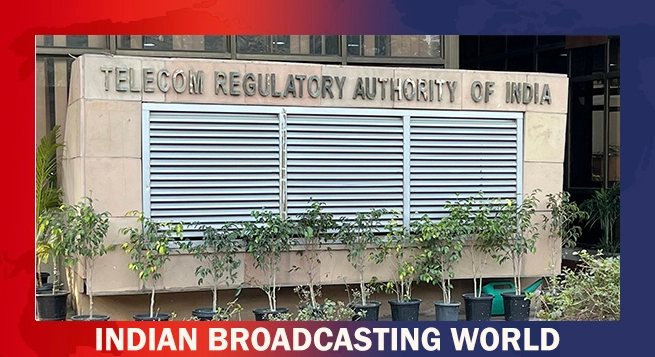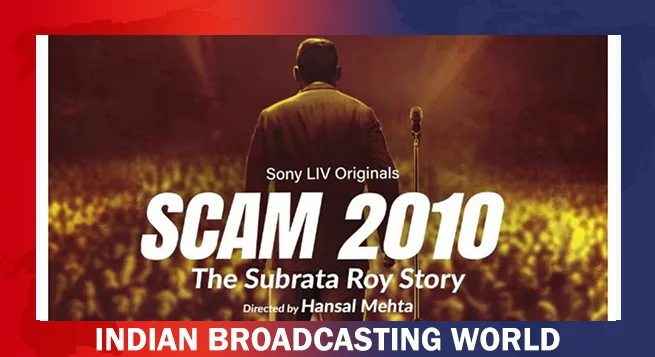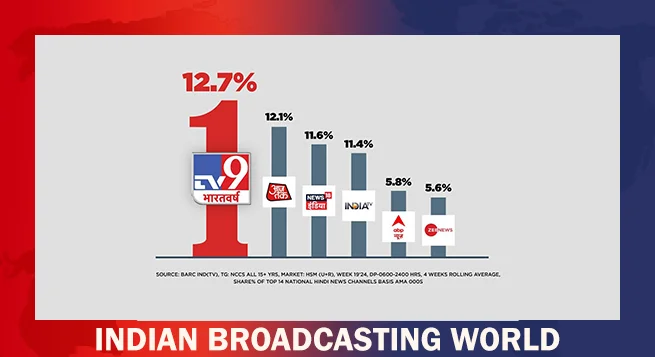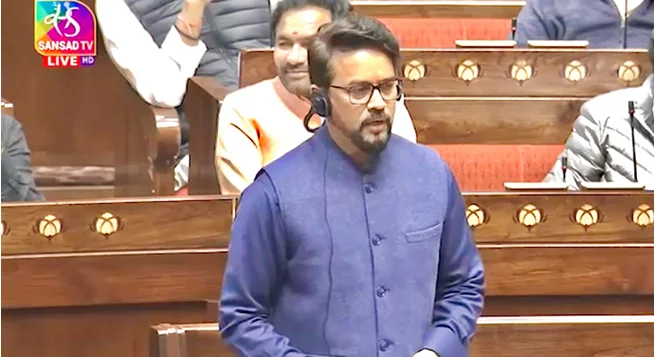On the last day of the parliament session for 2023, the last legislation to be okayed yesterday by the Lok Sabha was the Press and Registration of Periodicals Bill (PRPB), 2023, which is aimed at repealing the colonial era law of the Press and Registration of Books Act, 1867 and hailed by the government as more easing of doing business in India.
The Bill has already been passed by Rajya Sabha or the Upper House earlier during the monsoon session of parliament.
The new statute —The Press and Registration of Periodicals Bill, 2023 — makes the process of allotment of titles and registration of periodicals simple and simultaneous, through an online system without the requirement of any physical interface.
This would enable the Press Registrar General to fast track the process, thereby ensuring that publishers, especially small and medium, face little difficulty in starting a publication, the government said in an official statement yesterday evening.
More importantly, the publishers would no longer be required to file a declaration with District Magistrates or the local authorities and get such declarations authenticated. Further, printing presses would also not be required to furnish any such declaration; instead only an intimation would be sufficient. The entire process presently involved eight steps and consumed considerable time, the statement clarified.
Introducing the Bill in the Lok Sabha or the Lower House yesterday, Minister for Information & Broadcasting Anurag Thakur said, “The Bill reflects yet another step of the Modi Government towards jettisoning (the) mentality of slavery and bringing new laws for new India”.
The Minister further added that it has been the priority of the government to end criminality, improve ease of doing business and ease of living through new laws and, accordingly, efforts have been made to substantially decriminalize the colonial era rules.
For certain violations, financial penalties have been proposed instead of conviction as was done earlier. Further, a credible appellate mechanism, headed by the Chairperson of the Press Council of India, has been provided for. Stressing upon the aspect of ease of doing business, Thakur said the title registration process, which sometimes took two to three years, would now be done in 60 days.
It was felt that in today’s age of free press and the Government’s commitment to uphold media freedom, the archaic law was totally out of sync with the current media landscape.
Some of the highlights of the new Bill are as follows:
Grant of Title Allotment & Certificate of Registration Periodicals
- The Bill provides for a simple online mechanism to apply for title verification and grant of certificate of registration by the Press Registrar General to a periodical as a simultaneous process.
- There is no requirement of furnishing any declaration before the local authority or its authentication by the local authority.
- A person, who has been convicted by any court for an offence involving terrorist act or unlawful activity, or having done anything against the security of the State, shall not be permitted to bring out a periodical.
- Facsimile edition of a foreign periodical can be printed in India with prior approval of the Central (federal) Government and its registration with the Press Registrar General.
Printing Presses
- A printer of a periodical to furnish an online intimation to the Press Registrar General and the local authority.
- No requirement by the Printer to file any declaration before the local authority or obtain authentication from the authority.
Role of District Magistrate/Local Authority
- The Bill envisages minimal role of a District Magistrate/local authority with regard to grant of Certificate of Registration and title allotment.
- On receipt of an application, the District Magistrate is expected to provide its comments/NOC to the Press Registrar General within 60 days; thereafter the Press Registrar General can proceed to take a decision for grant of registration even where the comments/NOC are not received from the DM/local authority after 60 days.
- No requirement for a publisher to file any declaration before the District Magistrate.
- Books, which were part of the PRB Act 1867, have been taken away from the purview of the PRP Bill 2023, as books as a subject are administered by the Ministry of HRD.
- In the 2023 Bill, punishment of jail up to six months is envisaged only in the extreme cases where a periodical is published without a Certificate of Registration and the publisher fails to cease the printing of such publication even after six months of direction has been issued to that effect by the Press Registrar General.
 TRAI gives 7 days for additional submissions on b’cast policy
TRAI gives 7 days for additional submissions on b’cast policy  Prasar Bharati to launch family-oriented OTT Platform
Prasar Bharati to launch family-oriented OTT Platform  TV upfronts in times of digital video advertising: how relevant?
TV upfronts in times of digital video advertising: how relevant?  Bombay HC dismisses plea against bollywood icons for allegedly promoting tobacco products
Bombay HC dismisses plea against bollywood icons for allegedly promoting tobacco products  NCLT greenlights Viacom18, Disney Star India merger
NCLT greenlights Viacom18, Disney Star India merger  WBD showcases ad solutions, content, talent at Upfront
WBD showcases ad solutions, content, talent at Upfront  Hansal Mehta announces ‘Scam’ series on Subrata Roy
Hansal Mehta announces ‘Scam’ series on Subrata Roy  TV9 Bharatvarsh maintains leadership position as India’s No.1 Hindi News channel
TV9 Bharatvarsh maintains leadership position as India’s No.1 Hindi News channel 







